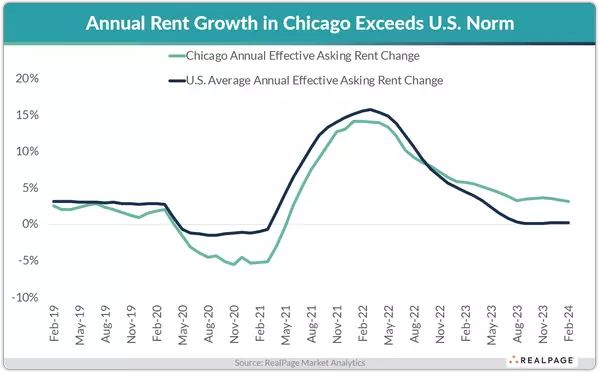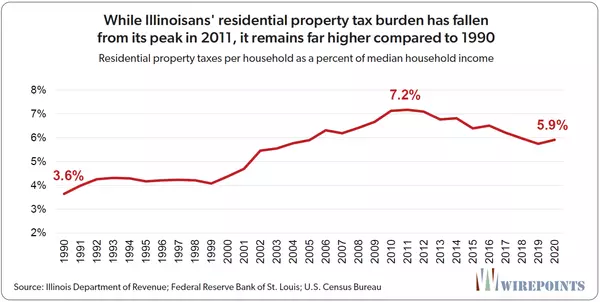Navigating Chicago Foreclosures: A Guide to Profitable Investments

In the bustling real estate landscape of Chicago, foreclosures present a unique opportunity for savvy investors and homebuyers alike. The process of purchasing foreclosed properties can be complex, yet it offers the potential for significant financial gain. This guide aims to demystify the Chicago foreclosure market, offering step-by-step insights into identifying profitable deals and providing expert tips to ensure successful investments. Whether you're a seasoned investor or a newcomer to the real estate scene, understanding the nuances of the foreclosure market can open doors to lucrative opportunities.
Let’s dive into the world of Chicago foreclosures and discover how you can capitalize on this dynamic market.
Understanding the Chicago Foreclosure Market
The Chicago foreclosure market is a dynamic and ever-changing landscape that requires a keen understanding of local real estate trends. Foreclosures occur when homeowners are unable to meet their mortgage obligations, leading lenders to repossess and sell the properties. In Chicago, the foreclosure rate has fluctuated over the years, influenced by economic conditions, housing demand, and lending practices. As of recent years, the city has seen a steady number of foreclosures, presenting opportunities for investors to acquire properties below market value.
To navigate this market effectively, it's essential to understand the factors driving foreclosures in Chicago. Economic downturns, job losses, and rising interest rates can contribute to an increase in foreclosures. Additionally, certain neighborhoods may experience higher foreclosure rates due to local economic challenges or shifts in housing demand. By analyzing these trends, investors can identify areas with a higher likelihood of profitable foreclosure opportunities.
Another critical aspect of the Chicago foreclosure market is the legal process involved. Illinois is a judicial foreclosure state, meaning that foreclosures must go through the court system. This process can be lengthy, often taking several months to complete. Understanding the legal timeline and requirements is crucial for investors looking to purchase foreclosed properties. Familiarity with court proceedings and necessary documentation can streamline the acquisition process and help avoid potential pitfalls.
Lastly, it's important to recognize the impact of government programs and policies on the foreclosure market. Initiatives aimed at preventing foreclosures or assisting distressed homeowners can influence the availability of foreclosed properties. Staying informed about these programs can provide valuable insights into market conditions and help investors make informed decisions.
Steps to Identify Profitable Foreclosures
Identifying profitable foreclosures in Chicago requires a strategic approach and thorough research. The first step is to gather information about available properties through various sources. Public records, real estate websites, and foreclosure auctions are valuable resources for finding foreclosed homes. Additionally, working with a real estate agent who specializes in foreclosures can provide access to exclusive listings and expert guidance.
Once potential properties are identified, conducting a detailed analysis is crucial. Evaluating the property's condition, location, and market value will help determine its profitability. It’s essential to assess any necessary repairs or renovations and factor these costs into the investment decision. Comparing the property's price to similar homes in the area can also provide insight into its potential resale value or rental income.
Another key step is to perform a title search to uncover any liens or encumbrances on the property. Foreclosed properties may have outstanding debts or legal issues that could affect the investment. Ensuring a clear title is vital to avoid unexpected expenses or complications down the line. Working with a title company or real estate attorney can help navigate this process and ensure a smooth transaction.
Finally, securing financing for the purchase is an important consideration. While some investors may have the capital to buy properties outright, others may need to explore financing options. Traditional mortgages, hard money loans, or private lenders can provide the necessary funds for foreclosure investments. Understanding the terms and conditions of these financing options is crucial to ensure they align with your investment strategy and financial goals.
Tips for Successful Foreclosure Investments
Investing in Chicago foreclosures can be highly rewarding, but it requires careful planning and execution. One of the most important tips for success is to develop a clear investment strategy. Define your goals, whether it’s flipping properties for a quick profit or holding them for long-term rental income. Having a well-defined strategy will guide your decision-making process and help you stay focused on your objectives.
Networking with other real estate professionals can also enhance your success in the foreclosure market. Building relationships with real estate agents, contractors, and property managers can provide valuable insights and resources. These connections can help you identify potential deals, estimate renovation costs, and manage properties effectively. Additionally, joining local real estate investment groups or attending industry events can expand your network and provide opportunities for collaboration.
Another critical tip is to conduct thorough due diligence before making any investment. This includes inspecting the property, reviewing financial documents, and understanding local market conditions. Being diligent in your research will minimize risks and increase the likelihood of a successful investment. It’s also important to have contingency plans in place to address any unforeseen challenges that may arise during the investment process.
Lastly, staying informed about market trends and changes in the foreclosure landscape is essential for long-term success. The real estate market is constantly evolving, and staying up-to-date with the latest developments will help you adapt your strategy accordingly. Regularly reviewing market reports, attending seminars, and consulting with industry experts can keep you informed and ahead of the competition.
Conclusion
Discovering profitable Chicago foreclosures requires a combination of market knowledge, strategic planning, and diligent execution. By understanding the foreclosure market, identifying promising opportunities, and implementing effective investment strategies, you can capitalize on the potential of foreclosed properties.
For additional expert insights on real estate investments in Chicago, check out NestChicago.com, which offers valuable market analysis and long-term investment strategies to help guide your real estate decisions.
Whether you’re looking to expand your real estate portfolio or find your next home, the Chicago foreclosure market offers a wealth of opportunities for those willing to navigate its complexities. With the right approach and resources, you can turn foreclosures into profitable investments and achieve your real estate goals.
Vic Melecio - LPT Realty
Categories
Recent Posts












